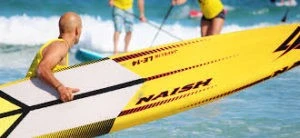How to store sports equipment in the storage room
How to store sports equipment in the storage room correctly?
Moving involves moving you and your family, but also, among other things, your sports equipment. Practitioners of some sports are well aware that sports equipment is not something that can be easily stored. The problems of space are accentuated if the sport we practice is seasonal, is related to the sea and waves or is one of those considered "risky": skiing, rowing, canoeing, surfparagliding, kayakingetc.
They all require the use of large equipment, so storing them can be a real headache. Whether you're storing them at home or renting a storage room, we have the right solution for you. Gil Stauffer here are some tips on how to store your equipment or sports gear so that it remains in perfect condition for a long time.
 BIKE
BIKE
The first thing to consider is whether you will be using the bike frequently or if it will be stored for a long period of time.
In the second case, it is advisable to raise the bike so that the tyres do not touch the ground and deflate them so that the inner tube does not deform. If we deflate them in contact with the ground, they will also suffer.
It is also important to grease the chain, sprockets, chainwheel and wheel axle very well, otherwise they may suffer from rust, which will complicate their later use.
If you are going to use your bicycle regularly, it is not necessary to deflate the tyres, but it is important that they are not in contact with the ground.
In any case, the best way to store your bike in the storage room is the one that takes up as little space as possible by hanging your bike on the wall or on the ceiling.

SKI EQUIPMENT
In general, it is not advisable to wash your ski jacket and ski trousers too often, as they are made of very delicate materials and may lose their properties.
On the other hand, it is essential that the skis are completely dry before storing them to prevent the edges from rusting and making it more difficult to sharpen them in the future.
It is also important to clean the soles of the skis with a specific solvent and, once cleaned, to apply a film of paraffin or wax before storing them (preferably separated, to avoid contact between the slippery surfaces and to prevent them from gaining adhesion).

DIVING EQUIPMENT
Salt water is a potent corrosive It is therefore essential that you wash all equipment with fresh water after each dive. It is also advisable to store your diving equipment out of the sun and away from high temperatures.
Tips for storing your diving equipment Neoprene Wetsuit
- It is advisable to wash it thoroughly on the inside with a neutral or special detergent for neoprene.
- It should be dried in the open air but not in direct sunlight. If stored damp, mould and odours may develop.
- If the suit is dry or semi-dry, it is advisable to lubricate the zips.
- For storage, it should be hung on a wide hanger to avoid bending and cracking.
Diving mask and fins
- The most important thing for these elements is that they are free of moisture and without kinks.
- In this regard, it is best to keep the mask in the case and to place plastic or newspaper lasts on the flaps to prevent deformation.
Regulator
- You will need to dry the regulator properly to avoid rust, especially in the first stage.
- It is important to hang it with the second stage down, so that any remaining water inside the sleeves is removed.
- It must be protected from sunlight, humidity and excessive heat.
- Do not bend the hoses so that they do not give way over time.
Jacket
- Before storing it, you should fill it with fresh water and leave it for a couple of days to dissolve the salt and prevent corrosion of the equipment.
- Afterwards, you will have to drain the water completely and then disassemble the valves, clean them with fresh water and reassemble them.
- Before hanging, it is advisable to inflate the bladder slightly to prevent the inner sides from sticking together.
Camera and housing
Clean each of the buttons and O-rings by soaking them in water. Then grease them with silicone grease to prevent cracking.
In general, it is not advisable to wash your ski jacket and ski trousers too often, as they are made of very delicate materials and may lose their properties.
On the other hand, it is essential that the skis are completely dry before storing them to prevent the edges from rusting and making it more difficult to sharpen them in the future.
It is also important to clean the soles of the skis with a specific solvent and, once cleaned, to apply a film of paraffin or wax before storing them (preferably separated, to avoid contact between the slippery surfaces and to prevent them from gaining adhesion).

SURF BOARD
As with diving equipment, it is essential to remove salt from the sea water with fresh water when you get out of the water. Salt can cause damage to the deck of the board.
If you are not going to use it for some time it is interesting to put a cover to protect it from scratches that may occur during transport.
In this sense, it is essential that you transport the board with the necessary fastenings to prevent damage that is difficult to repair.
Surfboards should not be left outdoors or in direct sunlight for long periods of time as they are sensitive to sunlight and extreme heat.
Before storing it, you should clean it with soap and a brush suitable for boards and repair small cracks to prevent further damage.
The best way to save the table of surf in the storage room is in a horizontal position in a dry and cool place and, if possible, on a shelf away from the floor.
Experience, trust and efficiency are our hallmarks. Find your Gil Stauffer Office and ask for more information.







